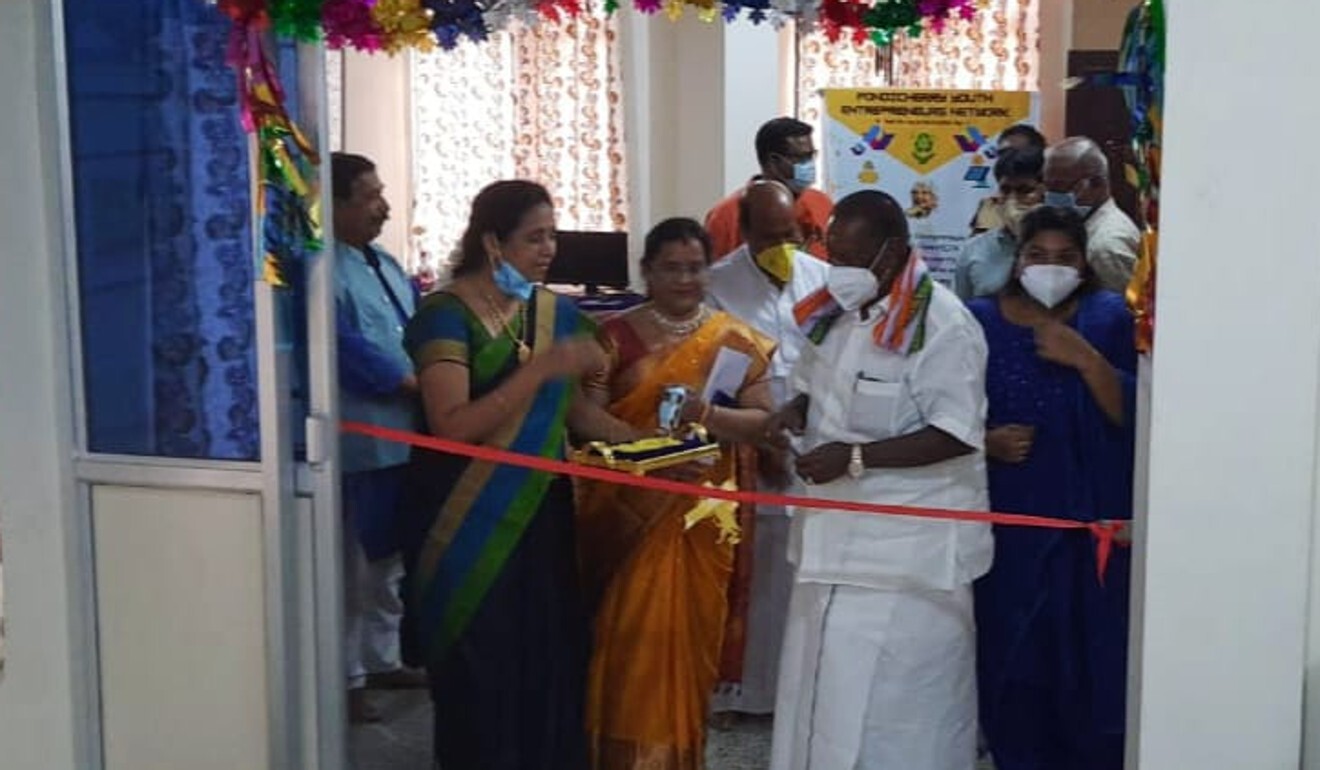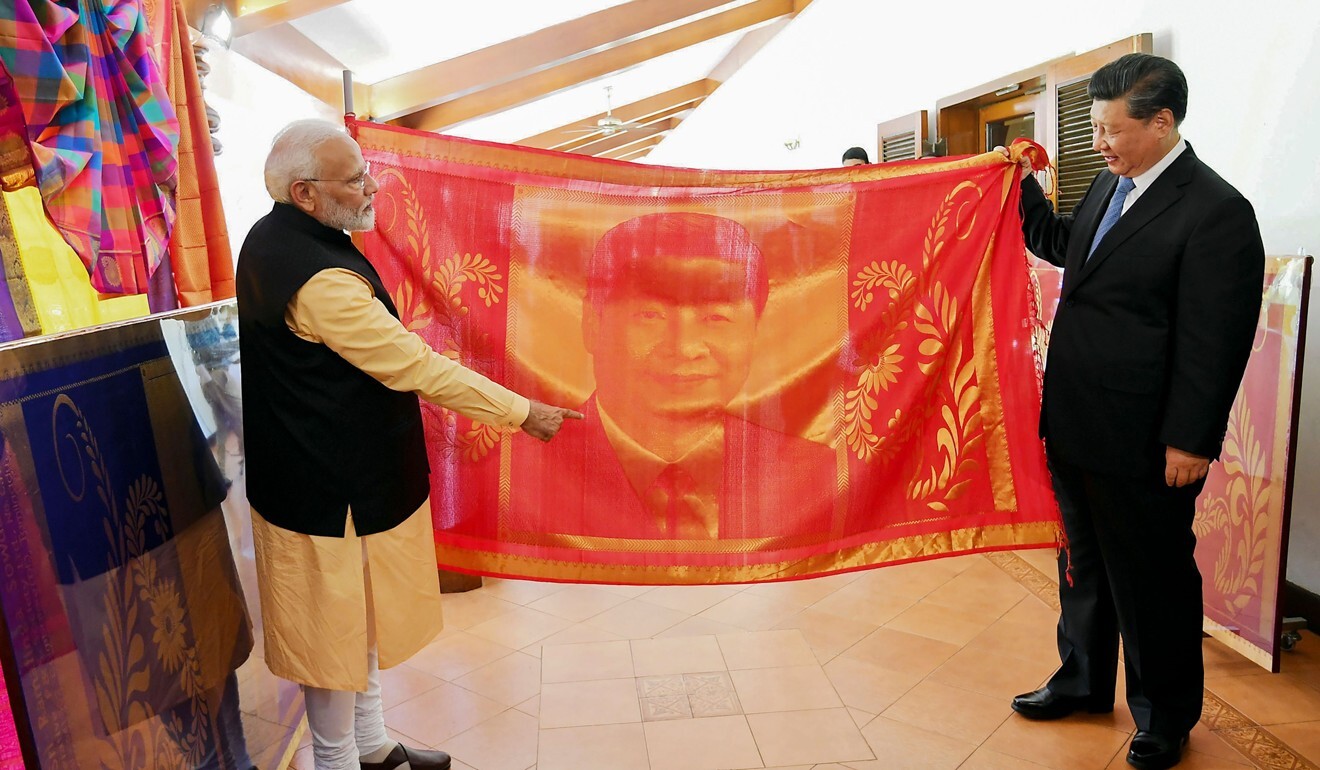
Can Chinese scholar Xu Fancheng’s legacy in India be a bridge in tense times?
- Xu Fancheng spent decades in India – studying, teaching and translating reams of Hindu scripture, poetry and other texts into Mandarin
- A new study centre in his former home base of Puducherry aims to keep his memory alive, and encourage greater Sino-Indian cultural exchange

When 29-year-old Xu Fancheng left China for India in the 1940s to study and teach, he could not have known that one day he would be considered a major cultural bridge between the two modern-day Asian adversaries.
For 27 years, Xu lived in a beachside house in the former French colony of Pondicherry, translating reams of poetry, Hindu scripture, and other philosophical and religious texts into Mandarin. In his spare time, he would paint and create Chinese calligraphy.
Today, the scholar’s name adorns a new study centre in Puducherry, as the southern Indian union territory is now known, aimed at promoting “cultural exchanges and people-to-people interaction between India and China”, according to its deputy director, Bikashkali Das.
Das, a doctor by profession, first encountered Xu’s work through his paintings – many of which could still be found in the homes of Puducherry locals at the time. Inspired by their brilliance, he went on to organise a seminar on Xu’s work in 2018, funded by the Chinese embassy, and helped establish the Pondicherry India-China Friendship Association that same year.

It was this association that unveiled the Xu Fancheng Culture Study Centre on October 26, the 111th anniversary of the scholar’s birth, at a ceremony attended virtually by Chinese Ambassador to India Sun Weidong, who said it would help contribute to the “comprehensive and systematic study of the academic achievements” of Xu.
The centre, which was set up using donations, intends to apply for research and fellowship funding from India’s Culture Ministry so it can offer academic degrees in collaboration with Pondicherry University and Dali University in China’s Yunnan province.
In addition to Xu, the lives and works of other notable scholars and monks who engaged in early Sino-Indian exchanges will also be studied at the centre, as will artefacts uncovered at a nearby archaeological site that are believed to have been brought by Chinese traders thousands of years ago.
But the centre’s opening comes at a turbulent time for Sino-Indian relations, as tensions at their disputed border ratchet ever higher following the deaths of 20 Indian soldiers in a clash with their Chinese counterparts in June, and New Delhi’s subsequent ban on more than 170 Chinese apps – including TikTok, which had more than 600 million Indian users.
Government approval is now needed before Indian colleges or universities can collaborate with Chinese institutions, a move that saw Visva-Bharati University’s Cheena Bhavana – for decades the locus of Chinese language and cultural learning in India – stop communicating with three Chinese universities, with which it had been planning educational exchanges.
It was at Cheena Bhavana that Xu, who hailed from a family of silk merchants in Hunan’s provincial capital of Changsha, started his cultural journey in India – teaching Chinese philosophy, history, literature, and art to students there for five years. He later studied classical Sanskrit for a year in the holy city of Varanasi, in northern India, before moving to Pondicherry.
Ashok Panda, a 55-year-old historian and Puducherry resident, said he remembered seeing Xu lighting incense sticks at the shrine of Sri Aurobindo, an Indian philosopher, yogi, guru and poet whose works Xu translated.
“He was the only Chinese we knew at that time. He looked very humble and he always smiled,” Panda said. “Many years later, I realised that he was a well-known scholar when I heard about him in a seminar.”
Panda predicted that Xu could prove to be a “unifying force” at a time of great anxiety in India, when distrust of China and its “expansionist” policies is running high.
The current regime in India wants to deliberately erase the memory of the India-China relationship in order to appease the US
Alka Acharya, former director of the Delhi-based Institute of Chinese Studies think tank, said it was important for Indians to understand contemporary China beyond TikTok and news headlines.
“The government must promote academic discourse and cultural ties and not deliberately suppress them,” she said, adding that nowadays there was “barely any cultural exchange between the two oldest civilisations of the region”.
“There is nothing wrong in promoting exchanges between scholars within permissible limits, keeping national security in mind,” Acharya said.
“It is imperative that we make the necessary investments to build a strong base of scholars who can study China in all its dimensions. For all practical purposes, China is still a big black hole in our collective comprehension.”

Indian Prime Minister Narendra Modi did take Chinese President Xi Jinping on a guided tour of the ancient temple town of Mahabalipuram last year, before bilateral relations soured, but little has been done to strengthen cultural ties under the Hindu nationalist leader’s tenure, aside from the publication of an Encyclopedia of India-China Cultural Contacts in 2014, the year he took power.
Sociopolitical activist and columnist Sudheendra Kulkarni, who writes extensively on India-China relations, said understanding Xu’s contribution to the two countries’ historical friendship was of utmost importance in these “dark” times.
He said it was “sad and condemnable” that Modi’s Hindu nationalist Bharatiya Janata Party seemed to pay no heed to the works of Xu, who studied Hindu religious and philosophical texts and “built bridges” by spreading awareness in China of India’s heritage, philosophy, spirituality and literature.
“The current regime in India wants to deliberately erase the memory of the India-China relationship in order to appease the US by publishing malicious propaganda against China and forgetting the rich history that the two shared,” he said.
“The relationship between the two countries must go beyond politics and people-to-people engagement must rise. All thoughtful Chinese understand this. Unfortunately, Indians lack this understanding.”
In 1978, Xu returned to China via Hong Kong carrying two suitcases filled with his translated works. He went on to work as a researcher at the Chinese Academy of Social Sciences think tank in Beijing, which in 2006 – six years after Xu’s death at the age of 91 – published his writings on Indian philosophy, Buddhism, Confucianism and Taoism in 16 volumes.
Devdip Ganguli, a member of staff at the Sri Aurobindo International Centre of Education in Puducherry, said Xu was an example of India and China’s shared heritage, and that if the people of both countries rediscovered this, they would realise they have “much more in common” than they could possibly imagine.